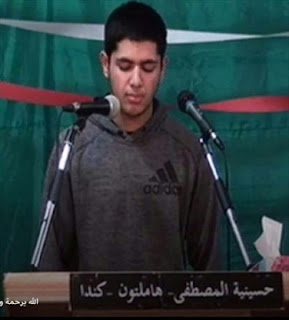My wife Vicki died of metastatic breast cancer on September 13, 2018.
Vicki didn't lose a battle with cancer, in the same way that a cyclist doesn't lose a battle with a truck.
No amount of "fighting" or "strength" or "bravery" could have changed the outcome. There was no "losing".
She lived, with hope, fear, & resilience until the inevitable end.
There is no one who wanted to live more than Vicki. She ached at the thought of not being at her youngest son's high school graduation next June, not seeing her children marry, not holding her grandchildren. If anything could have changed that, she'd have been the fiercest warrior imaginable.
Allow me to make this simple request: stop using battle metaphors to describe those living with, and dying from, cancer. They place a burden on those suffering. They make disease progression feel like failure.
Stop saying the patient "failed the chemo protocol" - in truth the chemo protocol failed the patient.
Stop telling people that they're strong, they can beat this. If they don't, was it because they were weak?
Stop telling people to keep fighting, when in reality they are facing incredibly difficult choices at the end of their lives about how to balance quality of life versus quantity. Urging them to fight puts pressure on them to continue treatment that is of marginal value in terms of life expectancy, but makes their final days full of appointments, procedures, drugs, and side effects instead of being able to spend time focused on the people they love, and things that bring them joy.
Battle metaphors give the false impression that a person can, through strength of character, affect the course of the disease, & suggest a moral failing on those whose disease gets worse. For the past 13 years, I've watched the most beautiful person I've ever known be consumed by guilt, wondering what she did to cause her cancer, or what mistake she made that caused it to come back after seemingly being cancer free for 9 years. She didn't do anything wrong, it was bad luck. That's all.
One of the greatest human fears is having no control over dire circumstances. For our own psychological protection, we delude ourselves into thinking we have power where we do not. You can't push back a hurricane. No individual can "beat" cancer simply by fighting hard enough.
What we can do, collectively, is work towards a better understanding of the process of cancer, learn about causes, incrementally develop better prevention & treatment strategies, and maybe, one day, find ways to save more lives. That's the fight that we all must join, with funding & resolve.
